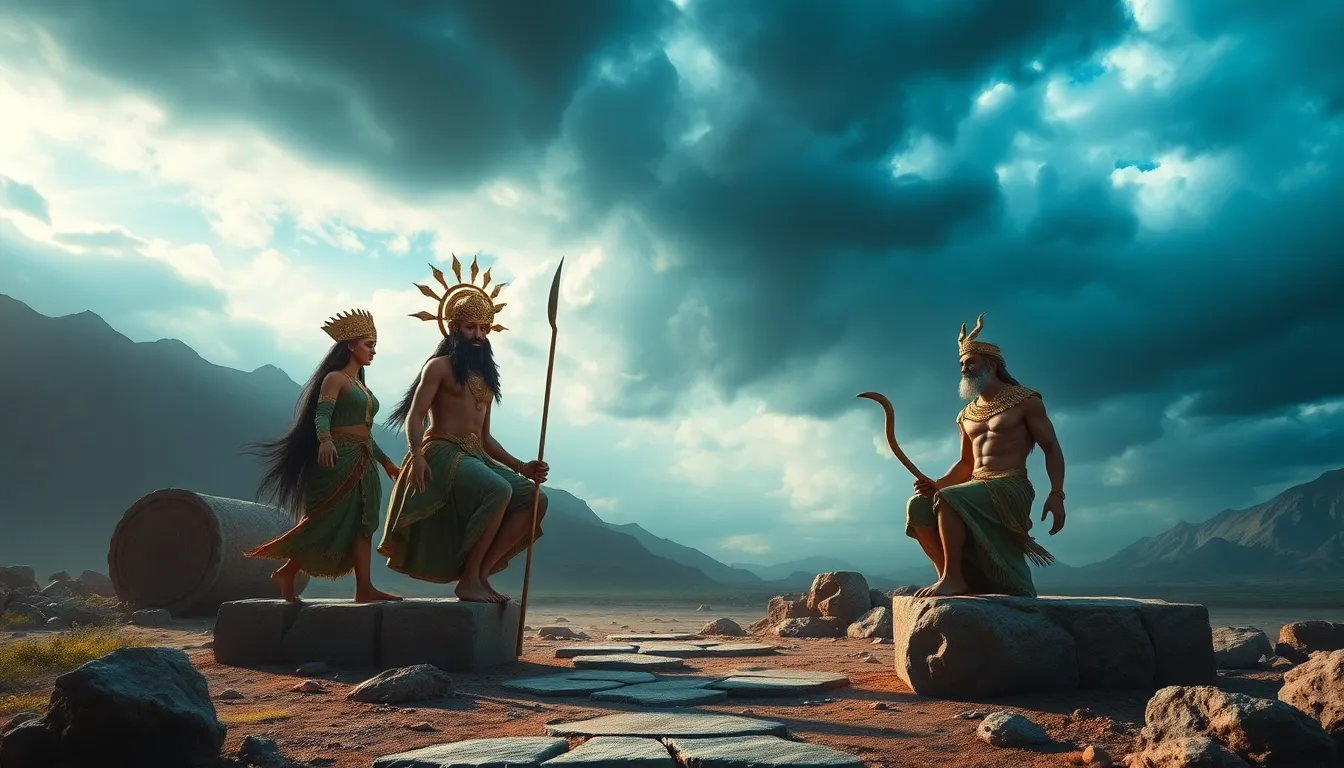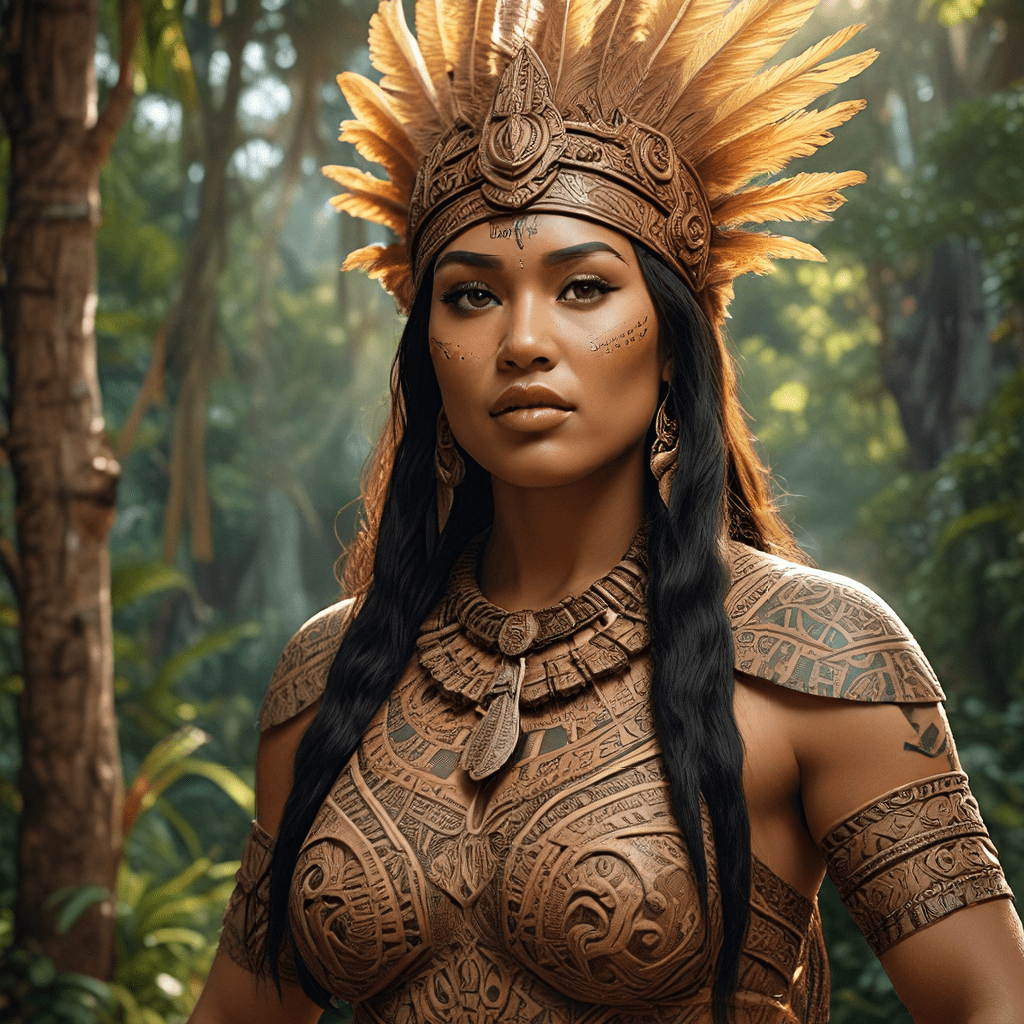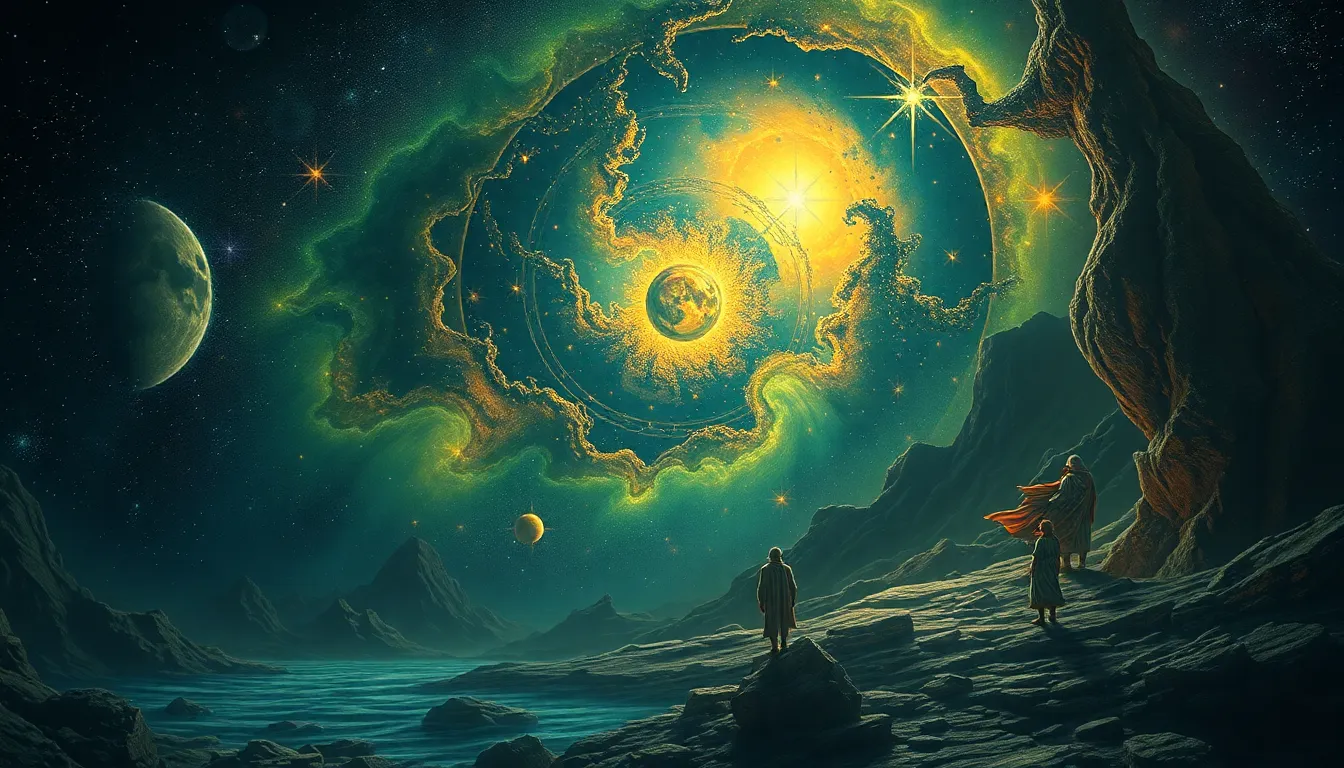The Role of Ancient Deities in Shaping Human Understanding
I. Introduction
Ancient deities are the gods and goddesses worshipped in the various religions and mythologies of ancient civilizations. These deities played a significant role in shaping cultural norms, social structures, and human understanding of the universe. This article aims to explore how ancient deities influenced human thought, morality, and society, outlining their historical context, attributes, and the lasting impact they have had on contemporary beliefs.
Understanding the influence of ancient deities is crucial for grasping how civilizations evolved and how their beliefs shaped the human experience. By examining the various aspects of ancient deities, we can appreciate their role in providing explanations for natural phenomena, moral guidance, and the development of community rituals.
II. Historical Context of Ancient Deities
Ancient deities emerged in various civilizations, each with unique attributes and cultural significance. Some prominent civilizations include:
- Mesopotamia: Home to gods like Marduk and Ishtar, who represented natural forces and societal order.
- Egypt: Featuring deities such as Osiris and Isis, who were central to beliefs about the afterlife and resurrection.
- Greece: Known for a pantheon of gods like Zeus and Athena, embodying human qualities and natural phenomena.
- India: With deities like Vishnu and Shiva, representing cosmic functions and the cycle of life and death.
The emergence of deities in early human societies often coincided with the need to explain the mysteries of life and the forces of nature. Over time, as civilizations grew and evolved, so too did their religious beliefs, leading to a rich tapestry of mythology and worship practices.
III. Ancient Deities and Their Attributes
The characteristics of deities varied across cultures but often included:
- Personification: Deities were often seen as personifications of natural elements such as the sun, moon, and earth.
- Symbolism: Each deity held symbolic significance, representing various aspects of life, morality, and human experience.
- Anthropomorphism: Many deities exhibited human traits, emotions, and behaviors, making them relatable to worshippers.
Mythology played a crucial role in shaping human experiences, providing narratives that explained the origins of the world, the nature of humanity, and the moral lessons necessary for societal coherence.
IV. Deities as Moral and Ethical Guides
Ancient deities significantly influenced moral codes and societal norms. Their teachings often provided a framework for behavior and ethics. Key examples include:
- The Ten Commandments: A biblical set of laws attributed to God, outlining fundamental ethical principles for the Israelites.
- The Code of Hammurabi: An ancient Babylonian code of law that emphasized justice and retribution, believed to be divinely inspired.
- Greek virtues: Concepts like bravery, wisdom, and temperance were personified in deities and served as moral ideals.
The impact of these divine commandments on human behavior was profound, guiding individuals and communities in their quest for righteousness and societal order.
V. The Role of Rituals and Worship
Rituals and worship practices served as significant means of connecting with deities. These practices included:
- Offerings: Gifts and sacrifices made to deities to gain favor or express gratitude.
- Festivals: Community celebrations that honored deities and reinforced social bonds.
- Prayers and invocations: Communicative acts intended to solicit divine guidance or intervention.
Such rituals fostered community and social cohesion, creating shared experiences and collective identities. The psychological effects of these rituals also contributed to a deeper understanding of existence and belonging.
VI. Deities and Human Psychology
The belief in deities has had a significant psychological impact on individuals. This includes:
- Identity Formation: Belief in deities often shapes personal and communal identities, providing a sense of belonging.
- Coping Mechanisms: Deities serve as sources of comfort during times of stress, offering explanations for suffering and mortality.
- Mythology and Creativity: Ancient myths inspire artistic expression and innovation, reflecting human imagination and cultural values.
These psychological dimensions illustrate how the belief in deities can profoundly influence individual lives and societal dynamics.
VII. Deities in Science and Cosmology
Ancient deities also contributed to early scientific thought and inquiry. Their influence can be seen in:
- Natural Philosophy: Early interpretations of the universe often merged scientific inquiry with divine explanations.
- Astronomy: Many ancient cultures linked celestial bodies to deities, leading to the development of early astronomical systems.
- Ptolemaic System: The geocentric model of the universe was influenced by religious beliefs, with Earth seen as the center of divine activity.
The intersection of religion and early science illustrates how deities shaped humanity’s understanding of the cosmos.
VIII. The Decline of Ancient Deities and Rise of Rationalism
Several factors contributed to the decline of polytheistic beliefs:
- Philosophical Movements: The rise of rationalist thought challenged traditional beliefs in deities.
- Scientific Advancements: Discoveries in science provided natural explanations for phenomena previously attributed to deities.
- Religious Reformations: The emergence of monotheistic religions shifted focus away from polytheism.
This transition from mythological explanations to scientific reasoning marked a significant turning point in human thought, although the legacy of ancient deities continues to influence contemporary philosophy.
IX. Modern Interpretations and Revivals of Ancient Beliefs
In recent years, there has been a resurgence of interest in ancient deities within modern spirituality. This can be observed in:
- Neo-pagan Movements: Groups that seek to revive and practice ancient religious traditions.
- Pop Culture: Movies, books, and art that reinterpret ancient myths and deities for contemporary audiences.
- Philosophical Discussions: Ancient deities are often referenced in ethical and philosophical debates, providing timeless insights.
The relevance of ancient deities in today’s cultural landscape highlights the enduring nature of these figures in shaping human understanding and experience.
X. Conclusion
Ancient deities have played a pivotal role in shaping human understanding across various dimensions, including morality, psychology, science, and culture. Their influence on early civilizations has left a profound legacy that continues to resonate in modern thought and spirituality. By studying these ancient figures, we gain insights into the foundational beliefs that have guided humanity throughout history, and we recognize the ongoing relevance of these myths in our contemporary lives.


